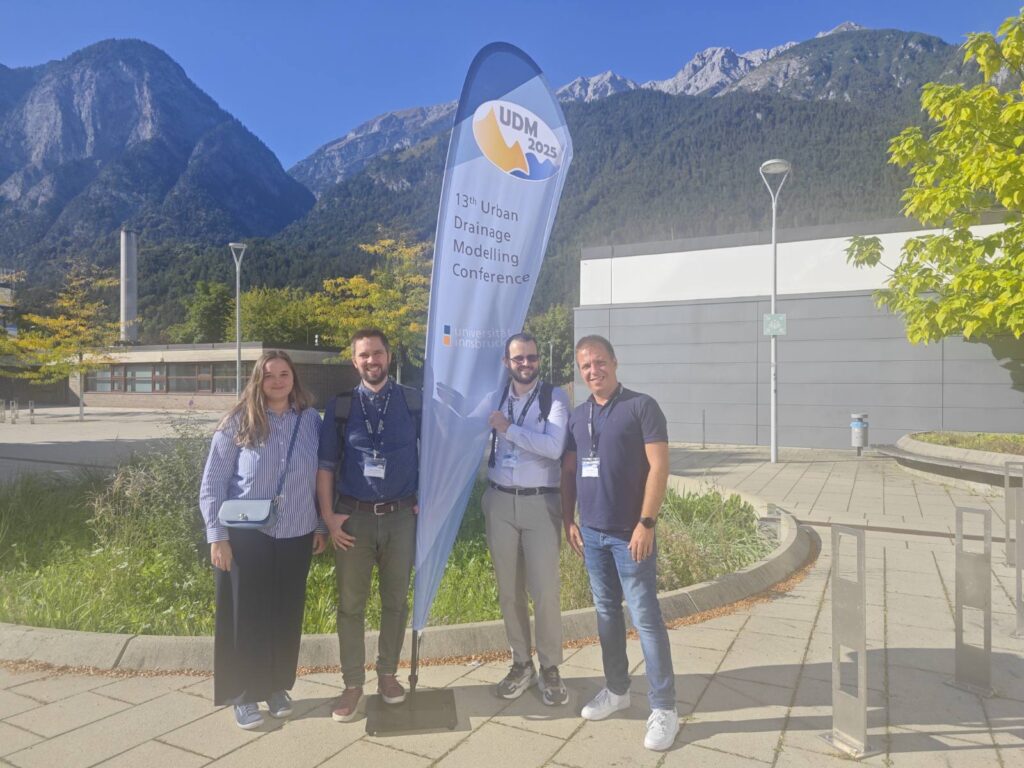IVI at the International Conference on Urban Drainage Modelling in Austria
The Institute for Artificial Intelligence of Serbia participated in the 13th international conference “Urban Drainage Modelling” (UDM) in Innsbruck, Austria. This conference is one of the leading international events in the field of urban hydraulic modeling and water management. Our researchers actively contributed by presenting two scientific posters and one oral presentation.
Junior research assistant Jasmina Moskovljević presented a poster titled “Urban Flood Prediction and Mapping Using Machine Learning and Deep Learning.” The poster provides a literature review on the application of machine learning (ML) and deep learning (DL) methods for predicting and mapping urban floods. In addition, an analysis based on the Bayesian Linear Mixed Model (BLMM) approach was conducted to examine the impact of input parameters on model performance. The results offer a deeper understanding of how key input factors influence the accuracy of flood predictions and spatial mapping. This work was supported by the ARTIFACT project, funded by the European Union under the Horizon Europe program (Grant Agreement No. 101159480).
The second poster, titled “Fast Nature-based Solutions (NBS) Condition Assessment through Indirect Plant Monitoring,” was presented by Dr. Veljko Prodanović, team lea of the “Green AI” research group. The work was carried out within the European Co-UDLabs project (H2020), in which the Institute for Artificial Intelligence played a leading role. Project partners included Lulea University of Technology (Sweden), NTNU (Norway), INSA Lyon (France), and the Serbian company BitGear.
The project aims to link the monitoring of above-ground plant parts with the condition of nature-based solutions (NBS) used for rainwater and wastewater treatment. This poster represents the first step toward that goal, demonstrating the use of BitGear’s Plant-o-Metre device. Building on these results, collaboration continues through the preparation of new European projects, aiming to expand the capacity for monitoring NBS systems across Europe.
In addition to the posters, research assistant Luka Vinokić delivered an oral presentation titled “Digital Twins of Urban Drainage Systems: ML-assisted Algorithm for Processing Sensor Data.” In his talk, Vinokić detailed how the concept of digital twins can be applied to urban drainage systems. He highlighted the use of machine learning algorithms to process sensor data, enabling timely problem detection, flow optimization, and reduced risk of urban flooding. His work further emphasizes the transformative role of artificial intelligence in modernizing urban sewage and drainage management while laying the groundwork for the development of smart and sustainable infrastructure solutions. Luka’s work was supported by DIGIDRAIN project (Serbian National Science Fund), in collaboration with Faculty of Civil Engineering, University of Belgrade.
